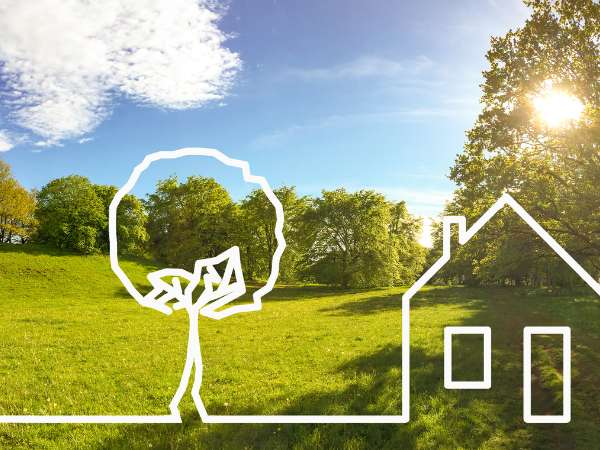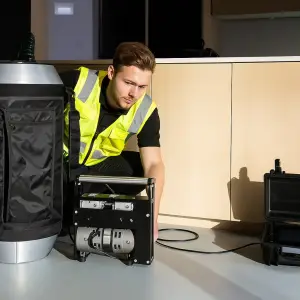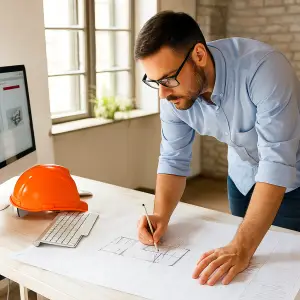Understanding Your Needs and Lifestyle
Before you start your search for the perfect plot, consider what you want from your new home. Are you seeking a quiet, rural setting or do you crave the energy of a vibrant urban environment? Do you want easy access to amenities such as schools, shops, and healthcare, or are you willing to trade convenience for tranquillity? Your answers to these questions will guide your search for the perfect location.
Planning Permission
Not all land is eligible for residential construction. Before committing to a plot, make sure it has the necessary planning permissions. Even if the land has outline planning permission, you will need to ensure the permission aligns with your proposed development. Local planning authorities can provide relevant information, but consulting with an expert, like the team at Ratio Seven, can save you time and avoid potential hiccups.
Infrastructure and Services
Consider the accessibility of utilities and infrastructure. Is the plot connected to local water, electricity, and gas supplies, or will you need to make arrangements to connect them? What about internet connectivity, a critical aspect in today’s digital world? The costs of bringing services to remote locations can add significantly to your project’s budget.
Orientation and Topography
The plot’s orientation and topography can affect the design, layout, and energy efficiency of your home. South-facing plots can allow for the optimum use of natural light and heat, whereas a slope can add complexity (and cost) to the construction but can be used creatively to enhance the building design.
Environmental Considerations
Flood risk, soil conditions, and protected wildlife habitats – these are all environmental factors that can impact your build. A site survey can provide valuable information about these aspects, helping you avoid potential complications further down the line.
Your Budget
Land cost can be a significant portion of your self-build budget. However, it’s important to factor in additional costs like connection to services, groundworks, local taxes, and the potential need for specialist construction due to local conditions.
Local Architectural Styles and Restrictions
Some areas may have restrictions on building styles to preserve local character. Make sure your dream design fits into any architectural guidelines or restrictions that may be in place.
Selecting a location for your self-build project is much more than just finding a place you love; it’s about finding a place where your dream home can become a reality. It involves careful planning, thorough research, and a deep understanding of your needs and goals.
At Ratio Seven, we understand the importance of getting it right. From SAP calculations to building consultancy, we’re here to guide you at every step of your self-build journey. After all, the aim is not just to build a house, but to create a home that resonates with your lifestyle, values, and, of course, your dreams.




